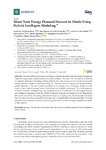Mostrar o rexistro simple do ítem
Short-Term Energy Demand Forecast in Hotels Using Hybrid Intelligent Modeling
| dc.contributor.author | Casteleiro-Roca, José-Luis | |
| dc.contributor.author | Gómez-González, José-Francisco | |
| dc.contributor.author | Calvo-Rolle, José Luis | |
| dc.contributor.author | Jove, Esteban | |
| dc.contributor.author | Quintián, Héctor | |
| dc.contributor.author | González-Díaz, Benjamín | |
| dc.contributor.author | Méndez Pérez, Juan Albino | |
| dc.date.accessioned | 2019-07-08T08:39:55Z | |
| dc.date.available | 2019-07-08T08:39:55Z | |
| dc.date.issued | 2019 | |
| dc.identifier.citation | Casteleiro-Roca, J.; Gómez-González, J.F.; Calvo-Rolle, J.L.; Jove, E.; Quintián, H.; Gonzalez Diaz, B.; Mendez Perez, J.A. Short-Term Energy Demand Forecast in Hotels Using Hybrid Intelligent Modeling. Sensors 2019, 19, 2485 | es_ES |
| dc.identifier.issn | 1424-8220 | |
| dc.identifier.uri | http://hdl.handle.net/2183/23424 | |
| dc.description | This paper is the extension of the conference paper: Casteleiro-Roca, J.-L.; Gómez-González, J.F.; Calvo-Rolle, J.L.; Jove, E.; Quintián, H.; Acosta Martín, J.F.; Gonzalez Perez, S.; Gonzalez Diaz, B.; Calero-Garcia, F. and Méndez-Perez, J.A. Prediction of the Energy Demand of a Hotel Using an Artificial Intelligence-Based Model. In Proceedings of the 13th International Conference, Hybrid Artificial Intelligent Systems (HAIS), Oviedo, Spain, 20–22 June 2018. | es_ES |
| dc.description.abstract | [Abstract] The hotel industry is an important energy consumer that needs efficient energy management methods to guarantee its performance and sustainability. The new role of hotels as prosumers increases the difficulty in the design of these methods. Also, the scenery is more complex as renewable energy systems are present in the hotel energy mix. The performance of energy management systems greatly depends on the use of reliable predictions for energy load. This paper presents a new methodology to predict energy load in a hotel based on intelligent techniques. The model proposed is based on a hybrid intelligent topology implemented with a combination of clustering techniques and intelligent regression methods (Artificial Neural Network and Support Vector Regression). The model includes its own energy demand information, occupancy rate, and temperature as inputs. The validation was done using real hotel data and compared with time-series models. Forecasts obtained were satisfactory, showing a promising potential for its use in energy management systems in hotel resorts | es_ES |
| dc.description.sponsorship | Fundación CajaCanarias; grant number PR705752 | es_ES |
| dc.language.iso | eng | es_ES |
| dc.publisher | MDPI | es_ES |
| dc.relation.uri | https://doi.org/10.3390/s19112485 | es_ES |
| dc.rights | Atribución 3.0 España | es_ES |
| dc.rights.uri | http://creativecommons.org/licenses/by/3.0/es/ | * |
| dc.subject | Energy forecast | es_ES |
| dc.subject | Artificial neural networks | es_ES |
| dc.subject | Hybrid modeling | es_ES |
| dc.subject | Support vector regression | es_ES |
| dc.subject | Hotel | es_ES |
| dc.subject | Tourism | es_ES |
| dc.title | Short-Term Energy Demand Forecast in Hotels Using Hybrid Intelligent Modeling | es_ES |
| dc.type | info:eu-repo/semantics/article | es_ES |
| dc.rights.access | info:eu-repo/semantics/openAccess | es_ES |
| UDC.journalTitle | Sensors | es_ES |
| UDC.volume | 19 | es_ES |
| UDC.issue | 11 | es_ES |
| UDC.startPage | 2485 | es_ES |
Ficheiros no ítem
Este ítem aparece na(s) seguinte(s) colección(s)
-
GI-CTC - Artigos [74]






